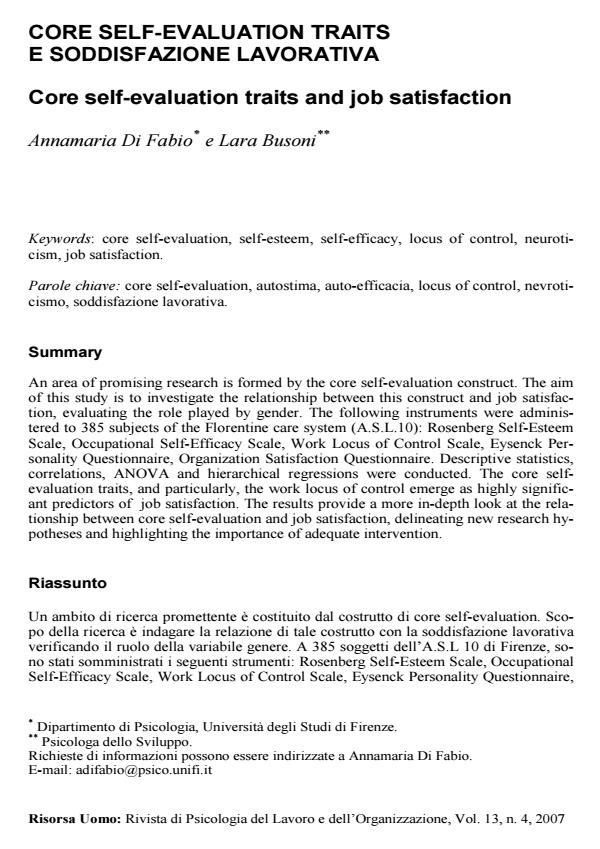Core self-evaluation traits e soddisfazione lavorativa
Journal title RISORSA UOMO
Author/s Annamaria Di Fabio, Lara Busoni
Publishing Year 2008 Issue 2007/4 Language Italian
Pages 15 P. 517-531 File size 91 KB
DOI
DOI is like a bar code for intellectual property: to have more infomation
click here
Below, you can see the article first page
If you want to buy this article in PDF format, you can do it, following the instructions to buy download credits

FrancoAngeli is member of Publishers International Linking Association, Inc (PILA), a not-for-profit association which run the CrossRef service enabling links to and from online scholarly content.
An area of promising research is formed by the core self-evaluation construct. The aim of this study is to investigate the relationship between this construct and job satisfaction, evaluating the role played by gender. The following instruments were administered to 385 subjects of the Florentine care system (A.S.L.10): Rosenberg Self-Esteem Scale, Occupational Self-Efficacy Scale, Work Locus of Control Scale, Eysenck Personality Questionnaire, Organization Satisfaction Questionnaire. Descriptive statistics, correlations, ANOVA and hierarchical regressions were conducted. The core selfevaluation traits, and particularly, the work locus of control emerge as highly significant predictors of job satisfaction. The results provide a more in-depth look at the relationship between core self-evaluation and job satisfaction, delineating new research hypotheses and highlighting the importance of adequate intervention.
Annamaria Di Fabio, Lara Busoni, Core self-evaluation traits e soddisfazione lavorativa in "RISORSA UOMO " 4/2007, pp 517-531, DOI: